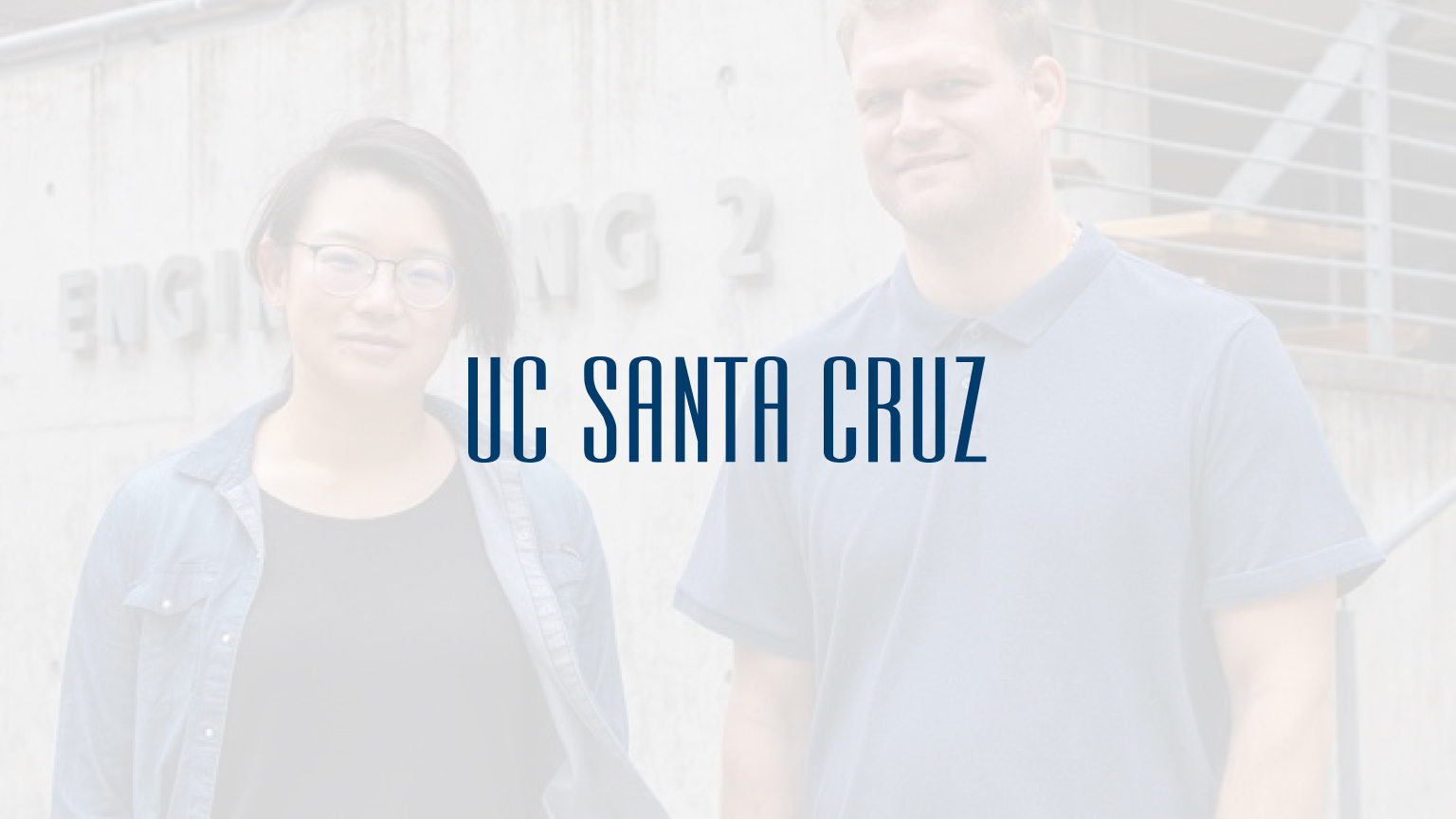article
Building the future of NLP techniques with USCS’s LivePerson Fellows
We’re teaching students the fundamentals of Conversational AI to build richer digital experiences for generations to come
April 18, 2022 • 5 minutes

While conversations are perhaps the most natural form of communication, they’re also incredibly complex. It’s not easy to teach artificial intelligence how to converse in a way that feels personalized, meaningful and, well, human. Working on the Science team at LivePerson, I spend my time chipping away at the linguistic challenges of human-AI interaction, and I’m proud to share that we’re helping the next generation of scientists get started down their own paths to make new breakthroughs in natural language processing, natural language understanding, and Conversational AI.
Davan Harrison and Wen Cui, both candidates for PhDs in Natural Language Processing (NLP), are our first LivePerson Fellows at the University of California, Santa Cruz. They’re working toward solving some of the big problems with NLP techniques, problems whose answers will help improve all kinds of experiences we have with the AIs we communicate with via voice or text.
But first, a little natural language processing backstory
When I was studying for my Ph.D. in Linguistics and a Master’s in Computer Science, I met a fellow grad student named Marilyn Walker. After graduating, Marilyn — Lyn, as I call her — went on to work as a research scientist for several household-name companies before returning to academia as a professor. Meanwhile, I went on to work at NASA (developing the first spoken dialogue system in space!), followed by Intel, and eventually, LivePerson. Both of our paths led to UCSC. I taught Computational Linguistics and Spoken Dialogue Systems courses and, shortly after I moved on to other pursuits, Lyn joined UCSC as a professor of Computer Science at the Baskin School of Engineering.
I always thought that NLP was a promising area of research for UCSC, and had hoped it would grow. My dialogue systems class had been popular, so the student interest was there. As Lyn established the Natural Language and Dialogue Systems Lab and launched the NLP professional masters program located at the Silicon Valley campus, I was excited to see that growth happening.
When Lyn asked me to join the program’s Industry Advisory Board and mentor its students, it was an ideal opportunity to jump back in and be part of growing NLP techniques at UCSC. (Besides, being able to collaborate with one of my grad school tribe on training the next generation is just fun.)
As a member of the Board, I get to share my experiences and knowledge with students from the perspective of a professional with broad NLP experience across industry, academia, and government. Plus, I give feedback on capstone projects and the curriculum itself to make sure they match the skills needed in this rapidly evolving field.
But we as a company wanted to do more. We want the next generation of NLP talent to be diverse, ethical, and well-rounded. The greater the diversity, the better the Conversational AI.
That’s where the LivePerson Fellowship comes in. Through our sponsorship of students in the field, we can help ensure that the machine learning, algorithms, and other models underpinning the Conversational AI of the future will help us and our brands provide more natural, empathetic, and human-feeling experiences for everyone.
Two exciting projects focused on different natural language processing techniques
Back to Davan and Wen. They’re working on truly exciting open-domain projects, meaning they aren’t tied to one specific industry or subject area. Davan’s area of study is dialog act classification, which identifies what somebody is trying to do when they say something. For example, if I am speaking or writing to tell you something, I’m informing you. If I am speaking or writing to try to get you to take an action, I’m trying to influence you. Those are two different dialog acts that AI can find hard to distinguish, but it’s critical to know the difference to understand what a human wants and what a good response would be.
Wen’s NLP technique area of focus is entity-linking. An entity is something like a proper noun: Neptune, Madonna, the New York Yankees. When we say those words, a whole set of information immediately pops into your head surrounding them, but an AI might not know if you’re talking about Madonna the singer or the Madonna of Christianity. By linking the right entity to the right set of information (like their Wikipedia article), entity recognition improves and the AI gains knowledge that supports more natural and informed conversation.
Both the dialog act and entity-linking challenges are hard to solve, but as we work toward making them more sophisticated, they’ll have huge impacts on the more narrow use cases we as consumers have for specific questions around our healthcare, shopping experiences, banking, and other everyday activities with brands. As Lyn said in an interview with UCSC:
“Our collaboration with LivePerson will help us better understand the research that is needed to make these systems more habitable. My students’ work within these areas will shape how people interact with the products that can make the world more accessible and easier to navigate.”
Marilyn Walker, Professor at UCSC
I’m so excited to be working with these excellent researchers and helping them move forward in their careers. I can’t wait to see what they do next, and how they will continue to innovate in dialogue understanding, entity recognition, machine learning, and other NLP techniques to help Conversational AI understand and use human language better. With these advances that enhance understanding of the AI-human context, we can create more positive digital experiences for generations to come.

